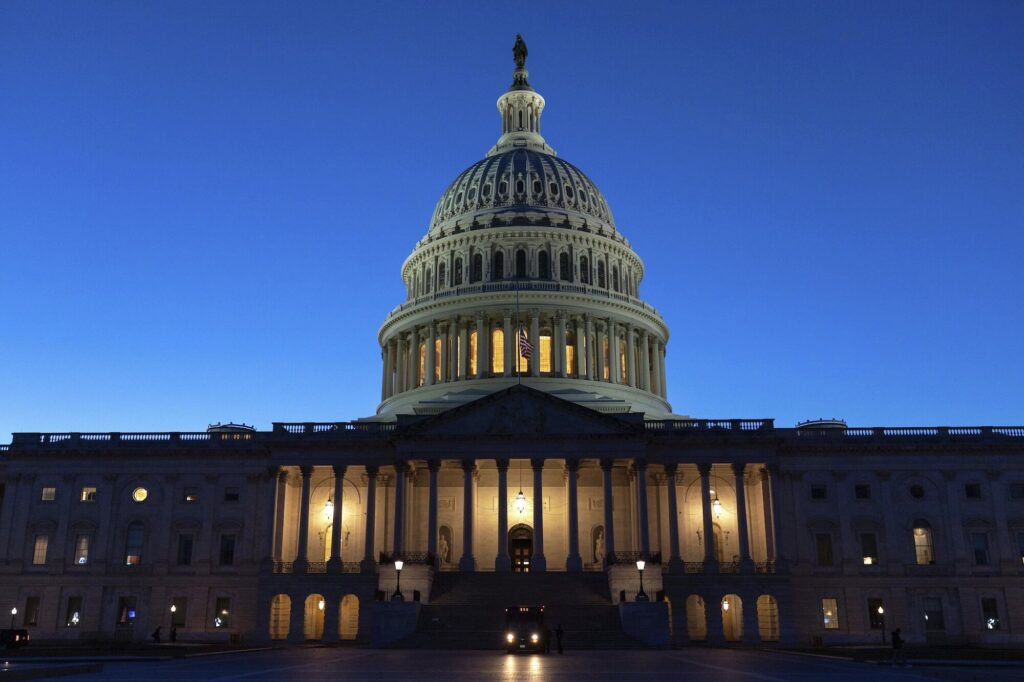Bennet: Put Colorado families’ interests ahead of Washington special interests

It’s become a tradition in Washington, D.C. While Coloradans are making plans to visit Rocky Mountain National Park for the Elk Rut and changing leaves or prepping for Broncos tailgates, Congress begins preparations for a potential government shutdown.
No local or county government in Colorado – Democrat, Republican, Independent, or Tea Party – would shut down its government or risk a default to make a political point. But that is the reality in Washington.

The now perennial arguments over whether or not Congress should do its job and keep the government open are among the more severe symptoms of the city’s dysfunction. On a whole host of issues, Washington has allowed politics to trump problem solving.
Congress continues to kick the can down the road on a bill to fund construction of and maintenance of our roads and bridges. After more than two years, the House of Representatives hasn’t acted on an immigration bill that received almost 70 votes in the Senate. There’s no progress on an energy plan that would meet our nation’s 21st century needs.
Working together on issues like these would add velocity to our economic recovery and help grow our middle class.
But instead, incumbent interests that have already won their own carve-outs in our tax and regulatory codes deep in the last century are benefiting from the status quo.
These narrow interests have become more powerful as the Supreme Court loosened campaign finance rules and opened the floodgates to unchecked, anonymous spending in our elections. It has paralyzed Washington and brought an unseen corruption in the votes never taken, the speeches never delivered and the issues never debated.
There are several simple, commonsense steps we can take to return power to families in Colorado:
? First, we can place a lifetime ban on members of Congress from becoming lobbyists and strengthen the “revolving door” restrictions on their staff who become lobbyists.
A study by the Center for Responsive Politics found that about 45 percent of former members of the 113th Congress who were employed at the time were working at lobbying firms, and close to 12,000 registered federal lobbyists actively lobbied in Washington in 2014. Lobbyists working for special interests shouldn’t be allowed to hold more sway than the American people.
? Next, we can reform the campaign finance rules that give lobbyists outsized influence. We should prohibit members of Congress (and candidates for those offices) from soliciting campaign contributions from lobbyists while Congress is in session. Senators and representatives should be focused on the work in front of them rather than asking lobbyists to fill their campaign coffers. Further, we can prohibit lobbyists from “bundling” tens of thousands of dollars (or more) in checks to members of Congress.
? We can also require organizations that are spending millions of dollars to influence elections to disclose their spending and their major sources of funding.
Every election, Coloradans have to endure one attack ad after another from political groups, many of them with phony names and supported by undisclosed donors. The few people who control these groups are setting the parameters for a debate that’s completely disconnected with the challenges and concerns of Colorado families. The Supreme Court has said it’s constitutional to require this disclosure.
We could also pass a constitutional amendment to restore Congress’s and the states’ authority to regulate campaign finance.
? Finally, we can take the constant threats of government shutdowns head-on. Sen. Cory Gardner and I have a bipartisan proposal aimed at preventing or quickly ending a government shutdown by holding senators accountable.
As opposed to allowing senators to shut down and leave town, it would require senators to remain at work – on or near the Senate floor – in the event of a full or partial shutdown until the government is reopened. If they do not show up, the sergeant-at-arms will be instructed to arrest them and escort them to the Senate.
At best, this proposal would motivate Congress to avoid governing by crisis and finish the work it was elected to do. At worst, it would force senators to stay on the floor and actually work with one another until they reopen the government.
Washington’s habit of turning routine responsibilities into manufactured crises has to end. The political theater is hurting our economy and competitiveness.
From the Colorado businesses that rely on the Export-Import Bank (which has been shut down for months), to the state’s veterans waiting for completion of the delayed VA hospital, to local communities that are unable to plan long-term infrastructure projects, Colorado is paying the price for Washington’s dysfunction.
The culture in Washington has been consumed by political games and distorted toward lobbyists and special interests, rather than the interests of the American people. If we hold Washington accountable, we can change that trajectory toward a stronger future with more opportunity for our kids and grandkids.
U.S. Sen. Michael Bennet, a Denver Democrat, is a member of the Senate committees on Finance; Health, Education, Labor and Pensions; and Agriculture, Nutrition and Forestry.














